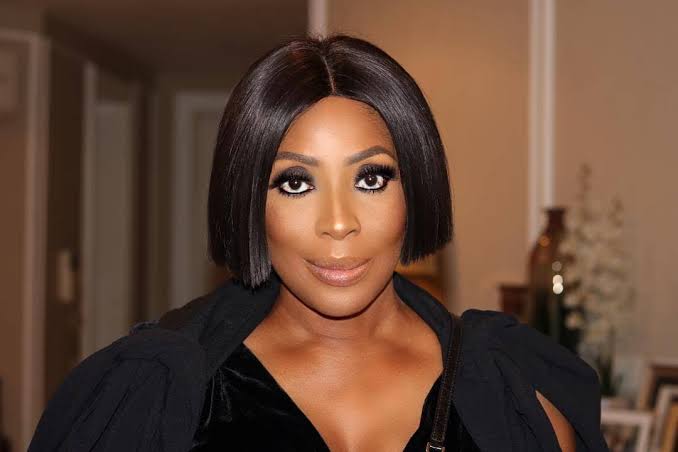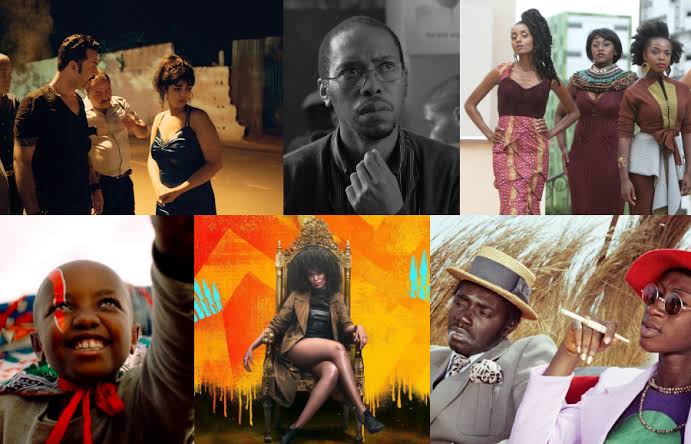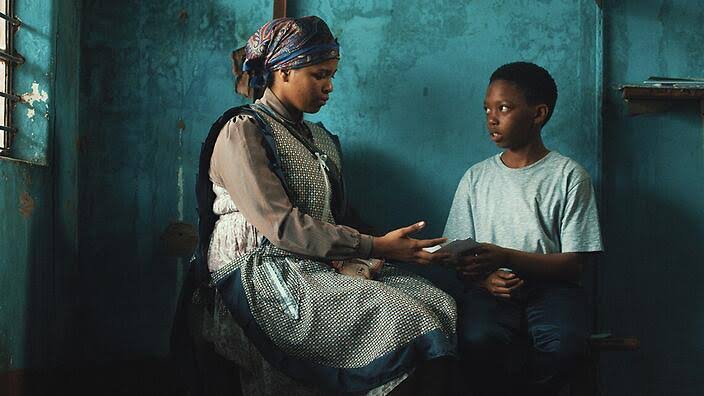…a platform for African writers for the purpose of discovering “the best authentic African story ideas which will inspire and resonate with viewers across the globe.”…
By Vivian Nneka Nwajiaku
“There’s a big problem with the way the rest of the world sees Africa. I think they want certain stories from Africa, and also, they are tired of those stories. So, it’s a difficult dance. Obviously, there’s more than just one type of story or one kind of African. And it’s not all child soldiers and acacia trees. There’s a variety of people and stories of cultures.”
– Karen Jennings.
In 2020, Netflix launched a campaign with the tagline “Made by Africans, Watched by the World.” The idea of the campaign was to bring African content to both local and global audiences.
Recently, in 2021, Mo Abudu’s Ebonylife entered a partnership with Sony Pictures Television to provide a platform for African writers for the purpose of discovering “the best authentic African story ideas which will inspire and resonate with viewers across the globe.”
They called the writers’ initiative “Àlọ́,” a Yoruba word that loosely translates to “once upon a time.” As part of the publicity for the project, Abudu sat in on a video call with Nina Lederman, Sony’s Executive Vice-President of Global Scripted Development and Programming.

There was a lot to take away from their conversation, but a few points really stood out to me. The first is that Africa has been largely ignored in the global space but is now a burgeoning market.
The second is that the initiative is about telling truly global stories. While the first point is certainly not news, its combination with the second is enough explanation on the why and how of Netflix and Sony’s recent interest in African content.
Of course, bringing “Africa to the world” is something to be proud of. But it is also something to be careful about. Having “global attention” as a goal is a very risky thing, especially when the vehicle for the dissemination of African content is itself predominantly foreign, as is the case with Netflix and Sony. There is no denying that these two media giants are doing something right.
They are creating opportunities for African filmmakers and employing local staff. They are providing resources that are ordinarily unavailable to filmmakers, enabling them produce films of a higher quality than African film industries are generally used to. This global trend is also evident in our written literatures today.
Even when Africans tell African stories, the experience of the African literary space has taught us that there is still the possibility, or even the likelihood, of telling these stories the way that non-Africans want African stories to be told, in a bid to drive global viewership. I only had to Google “What is truly an African story?” to find an article on the literary scene’s experiences. In it, Beaven Tapureta, Zimbabwean writer, literary critic and journalist, explored “the new wave of intellectual criticism that is sweeping across Africa regarding the role of Western literary prizes in shaping the African story.”

On one hand, he presented the view of Farai Mupfunya, the Executive Director of Culture Fund of Zimbabwe, that although writers write because it is within them to write and not because they want to win a prize, competition is good because it encourages the creation of new works. On the other hand, Tapureta quoted a Nigerian writer and critic, Ikhide Ikheola, who notably remarked that “The creation of a prize for ‘African Writing’ may have created the unintended effect of breeding writers willing to stereotype Africa for glory” as “many writers are skewing their written perspectives to fit what they imagine will sell to the West and the judges of the Caine Prize.”
The concern that African writers are compromising their perspectives for the sake of foreign audiences in a bid to “go global” is a valid one. It is not much different from non-Africans dictating the African story. It might even be worse, since, although a non-African dictates the story, it is an African who holds the pen.
It will likely be easier to question the authenticity of an African story told by a foreigner than one told by an African. In light of this, it is important to consider how Netflix and Sony and their noble visions to fund African stories told by Africans can have unintended contributions to this fear with respect to the film industry.
Currently, as regards films, there is barely a conversation as to what a truly African story is. But in a few instances, filmgoers and critics have raised their eyebrows at some of the content being released by or on Netflix for the global audience. Most notably, a review of How to Ruin Christmas: The Wedding, a 2020 Netflix Original Series from South Africa, praised the series for being “a supremely confident South African production” that “doesn’t try to pander to Americans.”
While the same writer took the opportunity to crown the Netflix hit, Blood and Water as a truly South African story, they were critical of other Netflix South Africa productions like Kings of Jo’Burg and Queen Sono, describing both shows as “ripped from the West and grafted onto the African continent.” Yet, foreign critics writing for The Hollywood Reporter and Decider, among others, seemed to enjoy Queen Sono, Netflix’s first African original series.
From the reviews, we get the idea that the familiarity of a spy thriller in a new and unfamiliar setting is what endeared Queen Sono to these foreign viewers, and as a Nigerian who enjoyed the series, I can relate to that sentiment. But some, at least, like the New York Times, recognised the series’ problematic attempt to appear western.
Similarly, in my review of Nollywood’s Shadow Parties which was released on Netflix in 2021, I queried the film’s desperation to appeal to a foreign audience by using unnecessary local and foreign languages in its forced attempt to be both local and global. A critic for Leisure Byte complained, “There are also random white people in Shadow Parties who really serve no purpose other than being white.” The critical consensus is that the introduction of a white saviour subplot in the film was a terribly bad idea.
On Sony’s part, the company is yet to release an original film or series from Africa as its “Àlọ́ Writers Initiative” has only just begun. But there is already something to worry about. In her video call with the Sony executive, Abudu made it clear that although films about African history are great, she is very much interested in the Afropolitan stories, “the day-to-day stories about the now.” In direct response —or contribution— to that, Lederman pointed out that Sony wants unique and original storytelling as opposed to one that appears to be a copy-cat from other climes outside Africa.
Lederman provided an example when she revealed that Sony had recently rejected a pitch for a show set in Africa because the show pitched could have been set anywhere and, consequently, did not celebrate a point of view that Sony has not seen. In this way, Sony’s strategy seems to be different from Netflix’s in that while Netflix does not appear to be bothered much about a story’s influences, Sony seems to prioritise influences.
But there is a bit of confusion as to what constitutes a copycat or a “Hollywood rip-off.” Sony’s position begs the question: Is a story less of an African story if it can be set anywhere? Are African stories only those that accentuate the differences between African countries and the rest of the world?
Abudu’s response is that we should celebrate both differences and similarities. As Brendah Nyakudya, the Zimbabwean editor of South Africa’s Afropolitan magazine put it, “I have African roots, but I’ve kind of been raised by the world, and that’s helped form my identity.”

Between colonisation and westernisation, African cultures and lifestyles have undergone too many changes for centuries, creating very many similarities with western lifestyles. From dressing, morality and religion to formal education, language and the political landscape, there has been too much foreign influence on Africa for cultural differences to be the only thing Sony or even we Africans care about.
Must stories come wrapped in poverty porn or in heavy cultural familiarity before they can be said to be African?
But there is certainly a difference between embracing similarities or unusual stories and the concept of pandering. Embracing similarities does not translate to skewing our perspectives in favour of the global audiences we want to share our stories with. That we have acquired certain western lifestyles does not mean that we should copy foreign content and slap indigenous names on them.
If Queen Sono had relied solely on being a spy thriller without digging into South Africa’s political and racial perspectives, the series would have been nothing more than a low-budget and underwhelming James Bond rip-off. Yet, the lines are blurry. It will take a long and heated conversation to clearly map them out. Hopefully, this is a start. And hopefully, in the process, we will get global but authentic movies, and a greater screen time.
Vivian Nneka Nwajiaku, a film critic, writer and lawyer, currently writes from Uyo.




